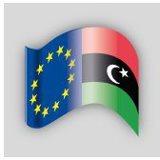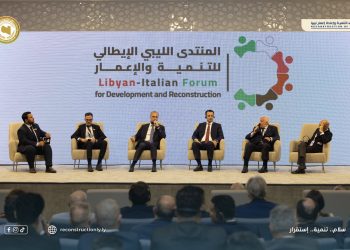By Jamie Prentis.

Tunis, 13 April 2017:
The EU adopted today a €90 million programme aimed at protecting migrants and the internally displaced in Libya.
A key aspect of the plan is the medical care of migrants at departure points, detention centres and urban settings. This will include identifying those most at risk and the provision of basic items such as food, and psychological first aid. In the detention aspect, the EU wants to create alternatives such as “safe shelters,” though their ability to do so is unclear.
This will take up €48 million of the programme which will also comprise voluntary repatriation and supporting migrants as they reintegrate once back to their native countries. This is something the IOM is already doing. The EU will also seek to collect and analyse data on migration flows in an effort to better understand its trends.
The rest of the money, €42 million, will be devoted to local governance and strengthening the authorities’ ability to provide services. This will include boosting economic development and access to job opportunities. Particular attention was given to providing “safe income to migrants and communities in the south where smuggling is a source of major revenue”.
EU foreign affairs chief Federica Mogherini said: “We are addressing the appalling conditions the migrants stranded in Libya face. The additional €90 million we adopt today are aimed at protecting and assisting migrants in the country and the people who host them.”
She also noted the separate €120 million programme to train the Libyan coast guard.
Her comments came as Presidency Council head Faiez Serraj told a German newspaper that the EU has reneged on promises to strengthen Libya’s coastguard and accused it of “making empty promises.”
Also, senior EU diplomat Johannes Hahn said yesterday’s “newly adopted programme will address the needs of the migrants and contribute to a better management of migration flows.
“In addition, the projects will also support improved socio-economic conditions for all in Libya, and thus contribute to reducing the drivers of irregular migration and make the smugglers’ task more difficult,” he said.
The money will be used by five organization but contractual terms are still being agreed. They are the IOM, UNDP, UNHCR, UNICEF and the German Corporation for International Cooperation.
Meanwhile, the G7 foreign ministers yesterday said: “We call on all Libyan parties to ensure secure access for humanitarian organizations to improve their response to the needs on the ground to ensure the respect of the fundamental rights of refugees and migrants and to protect them from abuses.”
Whilst the agreements adopted yesterday are a positive sign, the ability to actually adopt and fully implement them given Libya’s uncertain situation is a different thing entirely.





